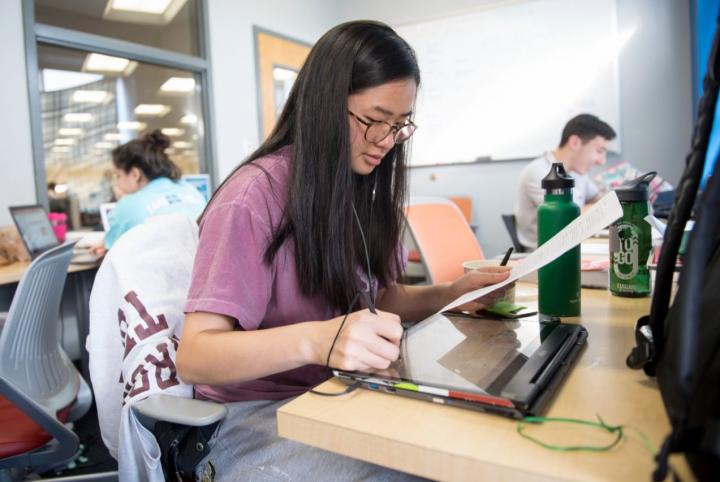
Credit: Virginia Tech
According to a report by the National Academy of Engineering, engineers often lack the understanding of systems that have many interacting parts, otherwise recognized as the cognitive understanding of basic concepts of complex human-technical systems. This lack of comprehension has been connected to “man-made disasters,” such as the Fukushima Daiichi nuclear accident and the Deepwater Horizon oil spill in the Gulf of Mexico.
Engineers design, build, and manage human-technical systems throughout their careers, therefore it is imperative to study the effect of cognitive barriers during and after their education.
Virginia Tech researchers have been awarded a grant from the National Science Foundation to study cognitive reasoning and thinking skills for both engineering students and working professional engineers. The research will also address the need for industry and government agencies to educate and develop complex problem solvers for the U.S. workforce in order to maintain its position as a global leader in innovation and overall economic competitiveness.
“The central research premise is of real importance,” said Kostas Triantis, a professor of industrial and systems engineering in the College of Engineering and the lead investigator of this grant. “Not only for higher education engineering programs, but for engineering organizations in general who invest in training programs and are interested in engineers’ effectiveness in handling complex problems and scenarios.”
Concept definitions and methods in this project are consistent with the system dynamics school of thought and utilize a combination of quantitative laboratory experimental methods and qualitative interview approaches.
Examples of cognitive barriers include the experts’ tendency to look at details at the expense of the big picture and the human tendency to focus on short-term as opposed to long-term outcomes.
Triantis leads a multidisciplinary team that includes Navid Ghaffarzadegan and Niyousha Hosseinichimeh, also of industrial and systems engineering, and Jake Grohs and David Knight, both of engineering education. The research builds on previous work in the domains of systems thinking, complexity, system dynamics modeling, and education.
“A great source of excitement and anticipation stems from the fact that the team members will have the opportunity to engage in interdisciplinary research,” said Triantis. “We will assume the interdependence of disciplines. This could lead to changes in our respective disciplinary understandings. In this context, we will interactively fuse practices in an interactive way through the research process.”
The research findings from this project will be integrated into engineering courses and subsequently will be used to design workshops that will be offered to companies, government agencies, and universities.
###
Media Contact
Lindsey Haugh
[email protected]
Original Source
https:/



